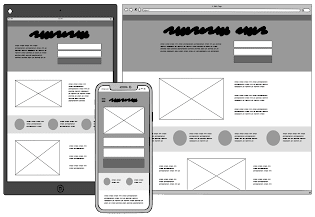Embracing the Future: The Emergence of Voice-Activated Mobile Applications
The Evolution of Voice Technology in Mobile Apps
In recent years, there has been a notable surge in the adoption of voice-activated technology in mobile applications. This transformative trend marks a significant shift in how users interact with their devices beyond traditional touchscreens. Voice-activated mobile apps leverage speech recognition and natural language processing to enable users to perform various tasks and access information using voice commands.Understanding the Power of Voice Commands
Voice-activated mobile apps empower users to execute tasks hands-free, providing convenience and efficiency in various contexts. From setting reminders and sending messages to controlling smart home devices and searching the web, the possibilities of voice commands are vast. Users can simply speak commands aloud, allowing for seamless interaction with their devices while multitasking or on the go.Benefits of Voice-Activated Mobile Apps
Q: What are the advantages of using voice-activated mobile apps? A: Voice-activated mobile apps offer several benefits, including enhanced accessibility for users with disabilities, improved user experience through intuitive interactions, and increased productivity by reducing the need for manual input. Additionally, voice commands can streamline tasks such as hands-free navigation while driving, making mobile devices safer and more convenient to use.Strategies for Implementing Voice Recognition Technology
Q: How can developers integrate voice recognition technology into mobile apps effectively? A: Developers can implement voice recognition technology by leveraging application programming interfaces (APIs) provided by platforms such as Apple's Siri, Google Assistant, and Amazon Alexa. By incorporating these APIs into their apps, developers can access robust speech recognition capabilities and natural language understanding, enabling seamless integration of voice commands into the app's functionality.Overcoming Challenges and Ethical Considerations
Despite the numerous benefits of voice-activated mobile apps, there are challenges and ethical considerations to consider. Issues such as privacy concerns, accuracy of speech recognition, and potential misuse of voice data must be addressed to ensure user trust and compliance with regulations such as GDPR and CCPA. Developers must prioritize data security and transparency to safeguard user privacy while delivering personalized voice experiences.The Future of Voice-Activated Mobile Apps
As voice-activated technology continues to evolve, the future of mobile apps looks increasingly voice-centric. Advancements in artificial intelligence and natural language processing will enable more sophisticated voice interactions, allowing apps to understand context, interpret user intent, and provide personalized responses. Moreover, integration with other emerging technologies such as augmented reality and wearable devices will further enhance the capabilities and versatility of voice-activated mobile apps.Conclusion:
In conclusion, the rise of voice-activated mobile apps represents a transformative shift in how users interact with their devices and access information. With the convenience of hands-free operation and the ability to perform tasks quickly and efficiently, voice technology is revolutionizing the mobile app landscape. However, developers must address challenges such as privacy concerns and accuracy of speech recognition to ensure the widespread adoption and success of voice-activated mobile apps. As technology continues to advance, the future holds immense potential for voice-activated mobile apps to become even more integral to our daily lives, offering seamless and intuitive experiences beyond the screen.
If you want to read more on Revolutionizing mobile app experiences, advancements in technology are reshaping how users engage with their devices. From personalized recommendations to seamless navigation, innovative features are enhancing user satisfaction and driving app adoption. By leveraging cutting-edge technologies such as artificial intelligence and augmented reality, mobile apps are transforming into intuitive and immersive platforms that cater to individual preferences. The era of revolutionizing mobile app experiences is here, offering endless possibilities for developers to create innovative solutions that revolutionize the way users interact with technology.

























